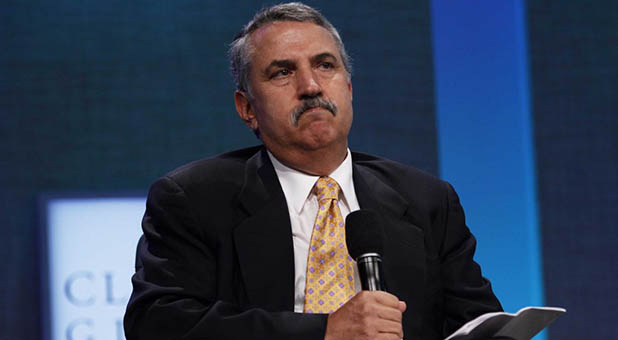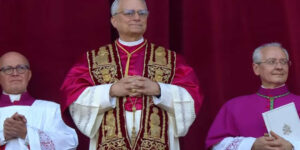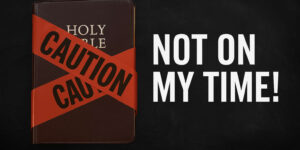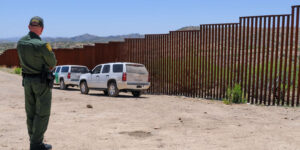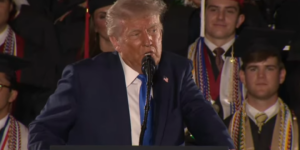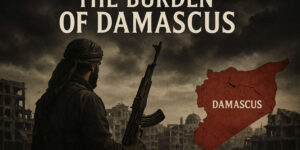Thomas Friedman Needs to Apologize to Israel
For the past 15 years, The New York Times columnist Thomas Friedman has been promoting the so-called “Saudi Initiative,” a plan which he says proves that Saudi Arabia sincerely wants peace with Israel. But this week, a senior Palestinian leader revealed that at the very moment the Saudis were launching that plan, they were financing a major wave of terrorism against Israel.
It’s time for Friedman to publicly admit he was wrong and apologize for the harm he caused to Israel.
It all started Feb. 6, 2002, when Friedman devoted his Times column to a memo that he wanted President George W. Bush to send to Saudi Crown Prince Abdullah and other Arab leaders. The memo would urge the Arabs to recognize Israel in exchange for an Israeli retreat to the pre-1967 armistice lines (including re-dividing Jerusalem).
Friedman then flew to Saudi Arabia, where he was granted a rare interview with Crown Prince Abdullah. And lo and behold, Abdullah proceeded to unveil a “Saudi peace plan” identical to what Friedman had been pushing. Friedman’s Feb. 17, 2002 column then became the vehicle for announcing the Saudi plan. Quite an unusual channel for an international diplomatic announcement!
The New York Times proceeded to pump up the Saudi proposal in its news columns. MSNBC noted, “What newspaper’s management can resist following up on a plan for Middle East peace that appeared to grow directly out of its own pages?”
The plan was based on the premise that the Saudis had given-up their decades-old hatred of Israel and denial of Israel’s right to exist, and were now sincerely interested in living in peace with Israel. That’s what Friedman tried to get the U.S. government, and American Jews, to believe.
Friedman had become, in effect, Riyadh’s most important Western spokesperson. And the timing could not have been better—the Saudis’ image in the U.S. had been profoundly tarred by the prominence of Saudi nationals (16 of the 19 hijackers) in the 9/11 attacks. So pretending to want peace with Israel could help distract from that.
Friedman’s efforts on behalf of the Saudis, however, were undermined by a Palestinian terrorist attack took place just as his PR effort was kicking into high gear. A suicide bomber struck at a Passover seder in the Park Hotel in Netanya. Twenty-seven people were murdered and 140 were wounded. It was the most notorious attack of the second Palestinian intifada, which lasted from 2000-2003.
And now it turns out that the second intifada terrorism was financed by the “moderate,” “peace-seeking,” “anti-terrorist” government of Saudi Arabia.
Nabil Shaath, the former foreign minister and longtime chief negotiator for the Palestinian Authority, made this stunning revelation in an interview last month with ON TV. Shaath described how, in the autumn of 2000, Crown Prince Abdullah summoned him to Riyadh, sending a private jet to Jordan to pick him up.
“So I went to his palace,” Shaath recalled. Abdullah said, “You are in the midst of an intifada. It may last two or three years. They will freeze all your assets. How will you continue this intifada? It takes money.” Shaath continued, “So I named the largest figure I could think of: $1 billion. I said that $1 billion could keep us going for two or three years. ‘It’s on me,’ he said … ‘I will pay half and will collect the other half’ … That’s what he did. That was the money that enabled us to survive in the three years of the intifada.” (Translation courtesy of the Middle East Media Research Institute.)
Thanks for your honesty, Mr. Shaath. Now we know that while Thomas Friedman and The New York Times were promoting the Saudi peace plan, the Saudis were financing second intifada attacks such as the Passover massacre. They were never interested in peace. Their checkbooks expressed their true feelings about Jews and Israel. An apology from their PR agent, Friedman, is long overdue. {eoa}
Stephen M. Flatow is a vice president of the Religious Zionists of America, an attorney in New Jersey, and the father of Alisa Flatow, who was murdered in an Iranian-sponsored Palestinian terrorist attack in 1995.
This article was originally published at JNS.org. Used with permission.



